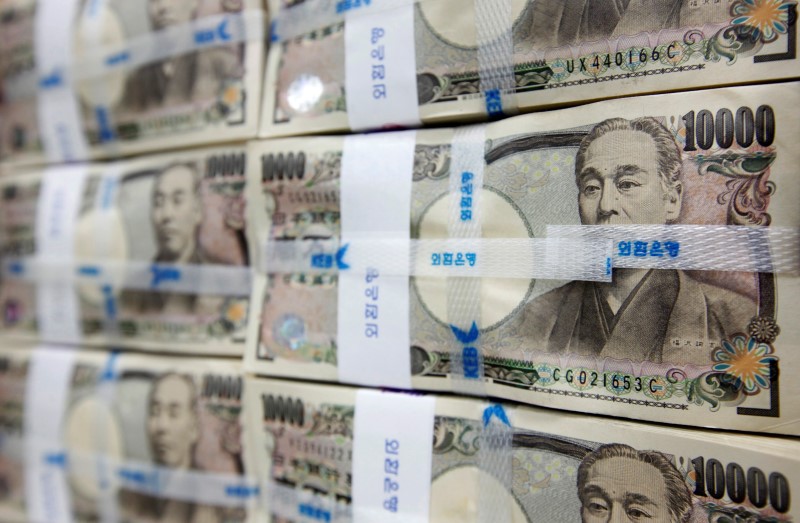Investing.com — Most Asian currencies fell on Friday, with the South Korean won falling amid ongoing political unrest, while the Japanese yen rose after interest rate hikes following inflation data from Tokyo.
The price in Asian trading ticked higher, staying near the two-year high it reached last week. It also ticked higher.
Most Asian currencies are expected to fall weekly after last week’s sharp losses, when the Federal Reserve forecast fewer interest rate cuts through 2025. The Fed’s outlook had given renewed strength to the dollar and created downward pressure on Asian currencies.
The Japanese yen rises due to interest rate increases
The Japanese yen pair fell 0.3% on Friday.
The Japanese capital grew more than expected in December due to increased price pressures, government data showed on Friday, keeping alive the possibility of a near-term rate hike by the Bank of Japan (BoJ).
Some Bank of Japan policymakers saw the conditions for a rate hike in the near term, with one predicting action “in the near future,” according to a summary of views from the December meeting.
Other data on Friday showed the country’s economy fell in November but contracted at a slower-than-expected pace from the previous month, reflecting subdued foreign demand.
Asian currencies under pressure as the dollar remains at nearly two-year highs
The Indian rupee fell further against the US dollar after hitting a record low in the costly session. The pair rose 0.2% to 85,713 rupees.
The Chinese yuan’s onshore pair was largely muted on Friday.
Chinese figures show the decline slowed in November, providing some relief for the struggling sector, although weak domestic demand continues to hamper recovery efforts.
The Singapore dollar pair rose 0.1%, while the Australian dollar was slightly lower.
The Philippine peso pair fell 0.4%, while the Indonesian rupiah pair rose 0.4%
The US dollar has remained strong, driven by the Federal Reserve’s aggressive stance on interest rates through 2025 and expectations of higher inflation and strong economic performance under the incoming administration of Donald Trump.
The South Korean won is falling amid growing political unrest
The South Korean won pair rose 0.7% on Friday after jumping the same in the previous session. The currency is expected to lose almost 2.5% this week.
South Korea’s acting president, Prime Minister Han Duck-soo, faces an impeachment vote on Friday amid a political crisis sparked by the Constitutional Court’s first hearing into President Yoon Suk Yeol’s short-lived martial law.
The push to oust Han has deepened the crisis, pushing the country’s democracy into uncertain waters and raising concerns among allies.


